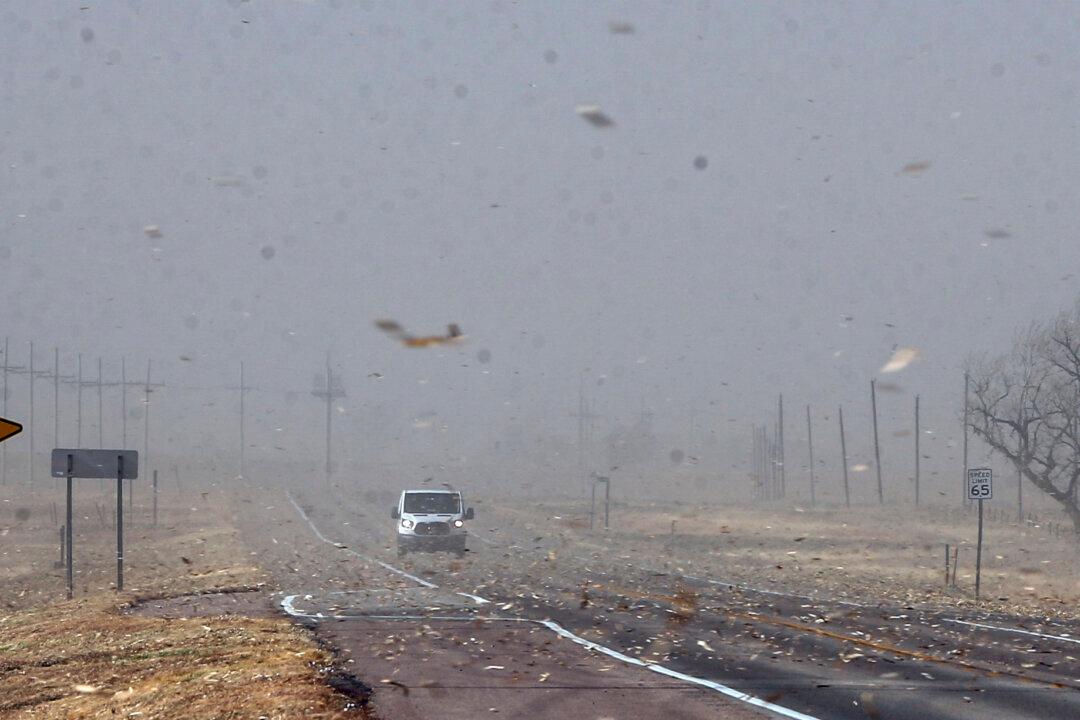OMAHA, Neb.—At least five people died as a powerful and extremely unusual storm system swept across the Great Plains and Midwest amid unseasonably warm temperatures, spawning hurricane-force winds and possible tornadoes in Nebraska, Iowa, and Minnesota.
In southeastern Minnesota, Olmsted County Sheriff’s Lt. Lee Rossman said a 65-year-old man was killed Wednesday night when a 40-foot tree blew onto him outside his home. In southwestern Kansas, blinding dust kicked up by the storms Wednesday led to two separate crashes that killed three people, Kansas Highway Patrol trooper Mike Racy said. And in eastern Iowa, a semitrailer was struck by high winds and rolled onto its side Wednesday evening, killing the driver, the Iowa State Patrol confirmed.





